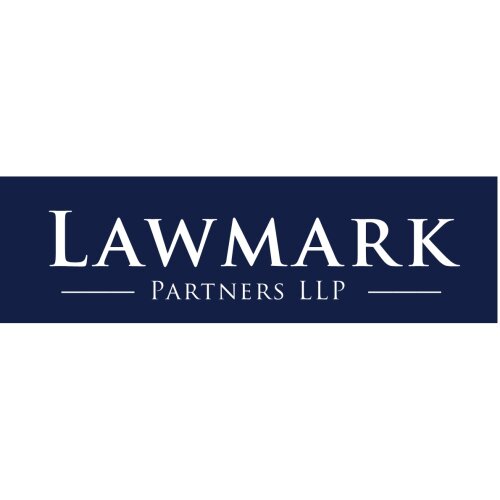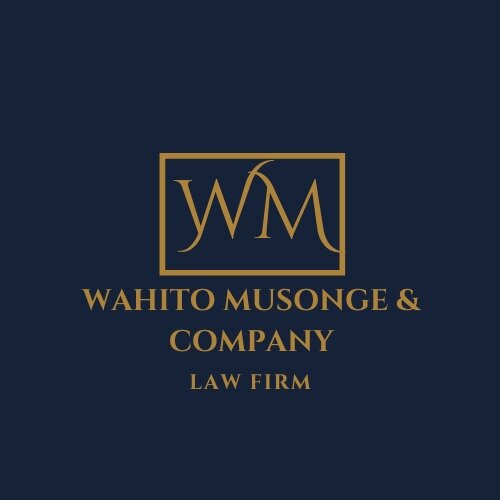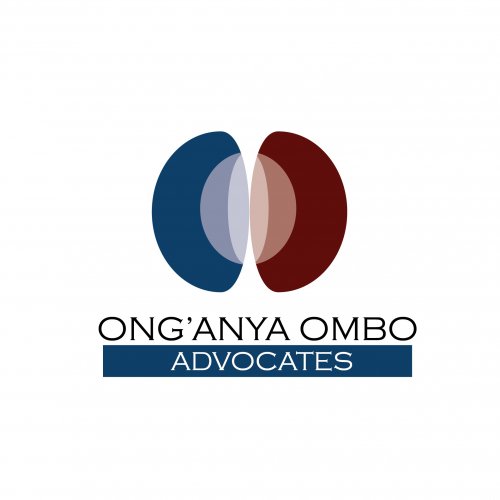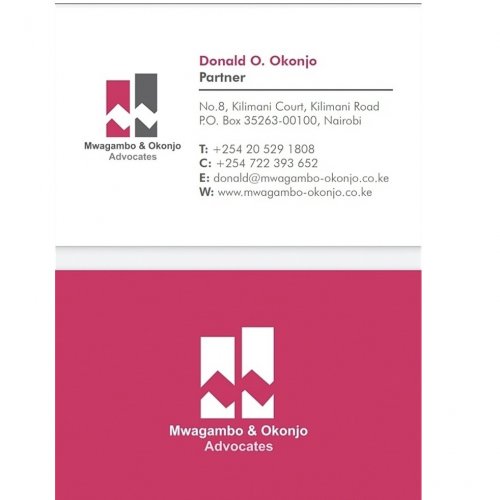Best Communications & Media Law Lawyers in Kenya
Share your needs with us, get contacted by law firms.
Free. Takes 2 min.
Or refine your search by selecting a city:
List of the best lawyers in Kenya
Legal guides written by Adroit Law LLP:
- Kenya Launches Digital Nomad Visa: A Gateway for Remote Workers
- Navigating the Payment System License Maze in Kenya
- Navigating the Complexities of Mining Licenses and Permits in Kenya: A Look into Artisanal and Large-Scale Operations
About Communications & Media Law in Kenya
Communications and Media Law in Kenya pertains to the regulation and governance of media, telecommunications, and broadcasting sectors. It encompasses a wide range of legal issues including the dissemination of information, freedom of expression, cybercrime, intellectual property, and the protection of privacy in the digital space. These laws aim to balance the growth of the media industry with public interest and national security considerations. They also help create an environment that encourages innovation while safeguarding the rights of individuals and entities involved.
Why You May Need a Lawyer
Individuals and organizations may require legal assistance in Communications & Media Law for several reasons:
- Media Ethics and Compliance: Ensuring that published content adheres to legal and ethical standards, avoiding defamation and libel issues.
- Broadcasting Licenses: Navigating the regulatory framework for obtaining and renewing broadcasting licenses from the relevant authorities.
- Intellectual Property Rights: Protecting the intellectual property of creators, including copyrights, trademarks, and patents in digital media.
- Privacy and Data Protection: Addressing concerns related to the collection, storage, and use of personal data in compliance with the Data Protection Act.
- Cybercrime: Defending against allegations or seeking action against online fraud, hacking, and misuse of digital platforms.
- Contract Negotiations: Drafting and reviewing contracts for media production and content distribution deals.
- Advertising Compliance: Ensuring that advertisements comply with legal standards and do not employ misleading claims.
Local Laws Overview
Key aspects of Communications & Media Law in Kenya include:
- Constitution of Kenya (2010): Guarantees freedom of expression and access to information under Articles 33 and 35.
- Kenya Information and Communications Act: Regulates telecommunications services and sets the framework for media operations in Kenya.
- Data Protection Act (2019): Establishes guidelines for data processing and protects individuals' privacy rights.
- Media Council Act (2013): Provides for the establishment of the Media Council of Kenya to set standards and ensure media practitioners' adherence to ethics.
- Film and Stage Plays Act: Governs the production and distribution of films and stage plays.
Frequently Asked Questions
What is the role of the Communications Authority of Kenya?
The Communications Authority of Kenya is responsible for regulating the telecommunications, radio communications, and postal/courier services sectors in Kenya. It ensures compliance with established standards and issues licenses for operation.
How does the Media Council of Kenya ensure ethical journalism?
The Media Council of Kenya sets ethical journalism standards and offers accreditation to journalists. It also investigates breaches and complaints against media practitioners to uphold journalistic values.
What are my rights under the Data Protection Act?
Your rights under the Data Protection Act include the right to be informed about data collection, the right to access your data, and the right to request correction or erasure of your data.
Can I sue someone for defamation if they post false information about me online?
Yes, you can file a defamation lawsuit if false statements about you are published online and harm your reputation. Legal action can seek damages and retractions.
What constitutes cybercrime under Kenyan law?
Cybercrime includes activities like unauthorized access, data interference, system interference, and various forms of online fraud and identity theft.
Do I need a license to start a radio station in Kenya?
Yes, you must obtain a broadcasting license from the Communications Authority of Kenya after meeting the set requirements and going through the application process.
How can I protect my digital content legally?
You can protect your digital content by securing copyrights or trademarks, ensuring proper licensing agreements, and enforcing intellectual property laws if infringement occurs.
Who regulates advertising content in Kenya?
Advertising content is regulated by the Kenya Advertising Standards Board, which ensures that ads are not misleading and comply with ethical standards and legal requirements.
What legal structures govern the telecom industry in Kenya?
The communications sector in Kenya is primarily regulated by the Kenya Information and Communications Act, with oversight provided by the Communications Authority of Kenya.
How does Kenya handle content regulation for films and stage plays?
Films and Stage Plays are regulated under the Film and Stage Plays Act, which requires creators to acquire licenses for production and ensures content adheres to national standards.
Additional Resources
The following resources and organizations can be invaluable for obtaining legal advice or information on Communications & Media Law in Kenya:
- Communications Authority of Kenya: Governing body for telecommunications regulation.
- Media Council of Kenya: Sets ethical standards for journalism and media operations.
- Kenya Film Classification Board: Responsible for regulating the creation, broadcasting, and distribution of films.
- Office of the Data Protection Commissioner: Enforces the Data Protection Act and protects individuals’ privacy rights.
- Kenya Law Reports: Source for legal publications and case law references in Kenya.
Next Steps
If you require legal assistance in the field of Communications & Media Law in Kenya, consider the following steps:
- Identify Your Needs: Clearly define your legal issue and the outcome you seek.
- Consult a Legal Expert: Reach out to a lawyer or legal firm specializing in media and communications law.
- Gather Documentation: Compile all relevant documents, communications, and evidence related to your case.
- Explore Legal Aid: If resources are limited, look into organizations that provide legal aid or pro bono services.
- Review Legal Framework: Familiarize yourself with the relevant laws and your rights for informed discussions with your legal counsel.
Lawzana helps you find the best lawyers and law firms in Kenya through a curated and pre-screened list of qualified legal professionals. Our platform offers rankings and detailed profiles of attorneys and law firms, allowing you to compare based on practice areas, including Communications & Media Law, experience, and client feedback.
Each profile includes a description of the firm's areas of practice, client reviews, team members and partners, year of establishment, spoken languages, office locations, contact information, social media presence, and any published articles or resources. Most firms on our platform speak English and are experienced in both local and international legal matters.
Get a quote from top-rated law firms in Kenya — quickly, securely, and without unnecessary hassle.
Disclaimer:
The information provided on this page is for general informational purposes only and does not constitute legal advice. While we strive to ensure the accuracy and relevance of the content, legal information may change over time, and interpretations of the law can vary. You should always consult with a qualified legal professional for advice specific to your situation.
We disclaim all liability for actions taken or not taken based on the content of this page. If you believe any information is incorrect or outdated, please contact us, and we will review and update it where appropriate.
Browse communications & media law law firms by city in Kenya
Refine your search by selecting a city.

















